The inspiration to begin a farm struck while Jason was working a computer job in a building with no windows.
Stella and Jason Ruggiero grew up in the farm country of Pennsylvania. They pursued careers in journalism and project management, bought a house, and had a baby. But the first plot twist was right around the corner…
Jason’s brother was working on a farm called Village Acres in Mifflintown, PA. They visited and thought the farming and CSA (Community Supported Agriculture) work was neat but didn’t think much more about it. The summer that Jason was running computer programs indoors all day, he started looking at pictures on Facebook of the farm his brother was on and wishing he could do something like that. He secretly began ramping up their garden to test out what it would be like to have a CSA, seeing if he could manage the garden so that there was lettuce ready for harvest every week. After a year, he told Stella he wanted to start his own. “We had just had a newborn baby,” Jason laughs, “but she didn’t say no.” Stella added, “I think my exact words were, that’s fine as long as I don’t have to be involved at all,” and she laughed. Plot twist number two was in the works….
They started the CSA in the backyard and Jason had eight customers that first year. “It was very tiny,” said Stella, “but it went well, and he really got bit by the bug. We made the decision to move back to the road I grew up on and bought a house from a family member to have access to family land.” The second year of the CSA was spent digging up their new farmland, which had been a horse pasture, by hand. Between selling their house, moving, and doing all the startup work a farm takes, they agreed it was a rough season.
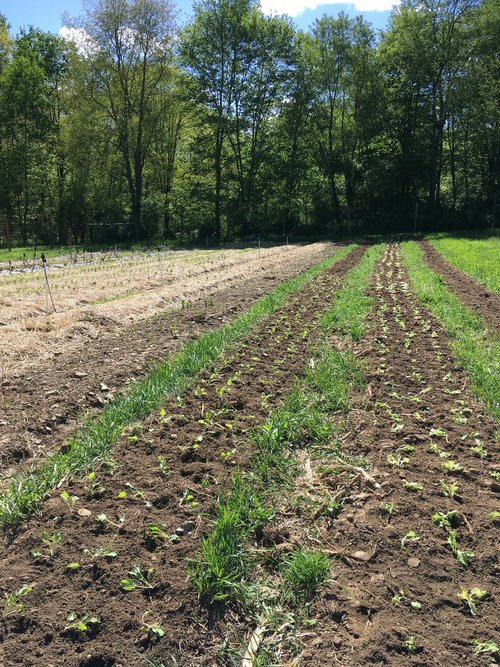
They decided early on to be zero spray and grow their food organically. “With the farm my brother worked on, we saw that it was possible, we had living proof that it could be done,” said Jason. “We only use mushroom compost as fertilizer that we get from a local place out here, and we always try to use cover crops.” They’ve used several techniques to manage bugs eating their crops, including planting in waves, varying plant locations, using diatomaceous earth, planting other crops as a distraction, releasing lady bugs, and screening in one of their high tunnels. “When you’re not going to spray, I think you need to take the multi-faceted approach, there’s not going to be a silver bullet. You just try a bunch of little things and try to make it work,” Jason explained.
The third year, Stella was ready to leave her full-time job as a newspaper journalist to be home more with Jason and their son. She was looking into starting her own business at the same time that Jason was realizing he needed more help with the farm. “I was like, well, would you hire me?” said Stella. “So that’s what we did, that’s how I became involved.”
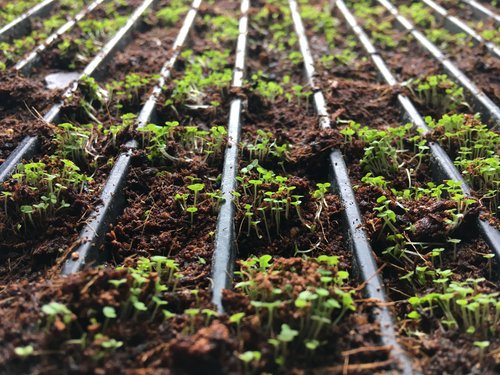
That was the year they decided that the farm could support a loan payment and decided to purchase some equipment. They worked with the farm service agency at USDA, showing them their business plan and financial data, and were offered a seven-year loan which they used to purchase a walking tractor, sheds, and tools. “We could not have continued to do the farm at the level we were doing it without the walking tractor, doing it all by hand was not sustainable,” said Stella. The loan was key since they were about a $20,000/year business and needed about $25,000 worth of equipment. “They loaned us the money at a very good interest rate, and that next year we went up to $50,000 worth of sales. From the farm service agency standpoint, that’s what they want to do, we doubled our output because they were able to loan us money, and we put that back into the economy every year of the loan,” said Jason.
Jason still worked full-time off the farm and was also doing the planning, seeding, and transplanting seedlings while Stella took over the day-to-day farm work, harvesting, and going to Farmer’s Markets, toddler in tow. At that point they decided they needed to hire someone else to help, and found an amazing worker named Angelica who worked part-time with them for two seasons. With her help, they were able to grow their CSA to 75 members, attend three farmer’s markets a week, and gain two commercial accounts at grocery stores. The farm was completely self-sufficient at that point and Jason’s off-farm job was supporting the family.
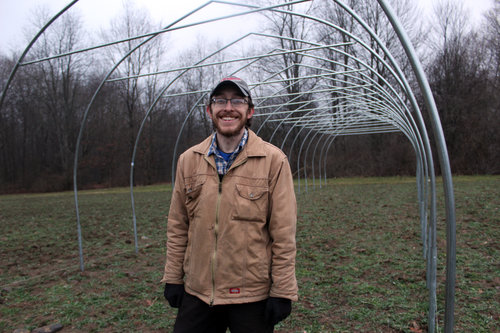
Year five of the CSA and another plot twist threw all of us into limbo when the pandemic hit. Farmer’s markets were shut down, they could no longer afford farm help, and they managed to make it through the year with Jason working from home. As happened for so many of us, the pandemic gave Stella and Jason time to think about the sustainability of their lifestyle. They had each been working 80-hour weeks, and they wanted more time to spend together and enjoy life. They pushed through a final year of Jason working his off-farm job with plans to then focus on the farm. Jason was starting his own side business doing project management and grant writing, which was intended to be part-time to supplement the farm and provide income during the winter.
Yet another plot twist….
Jason’s new business was successful within weeks. “We should have known we were in trouble right away,” Stella laughed, “We make the best plans, and nothing ever goes according to plan! His other business took off like we never imagined. We were so happy, it worked out really well.” But with 45 members in their CSA that year, they ended up with another very busy year. They made the decision that year that it would be their last doing the CSA. “It was a fantastic season. We went out of the CSA on a high note and on our own terms, we are so glad for that,” said Stella.
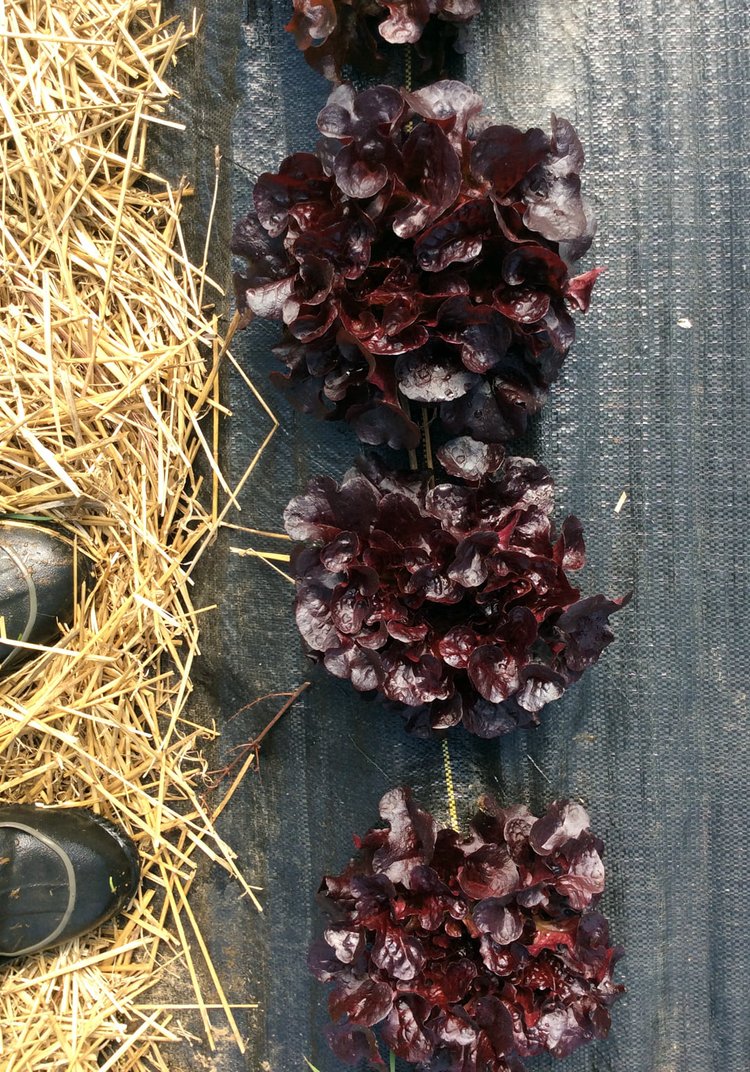
The CSA experience came with pros and cons. The consistent income was a huge benefit. “You can plan a solid budget because you know how much is going to be coming in that season,” said Stella. They didn’t have to finance any purchases outside of the USDA loan for the equipment, and they were able to plan around the number of CSA customers they had.
The other side of that coin, however, is the stress that goes along with the commitment to provide for customers each week. “I’m proud to say we did meet that every season,” said Stella. “One way or another you have to find a way to make it work that week.” Their hardest problem was dealing with deer eating their crops. “We had a horrible deer problem that almost drove us out of business,” said Stella. “You would go up there, you would have planted 100 feet of lettuce and it would be gone overnight, it was horrible.” Jason said that one year the deer were so bad that they were essentially operating a 50 member CSA just out of four high tunnels because “that was the only thing that we could be sure they wouldn’t get into it. Then one day we went up and there was a deer in the high tunnel, it had jumped inside. Then when we opened the door and spooked it, it punched a hole through the plastic in the back of the tunnel to get out, and we were just like…okay,” he laughed.
They wrote a grant to their home county and received funds for a 7 ½ foot tall deer fence. That year ended up being their best CSA season.
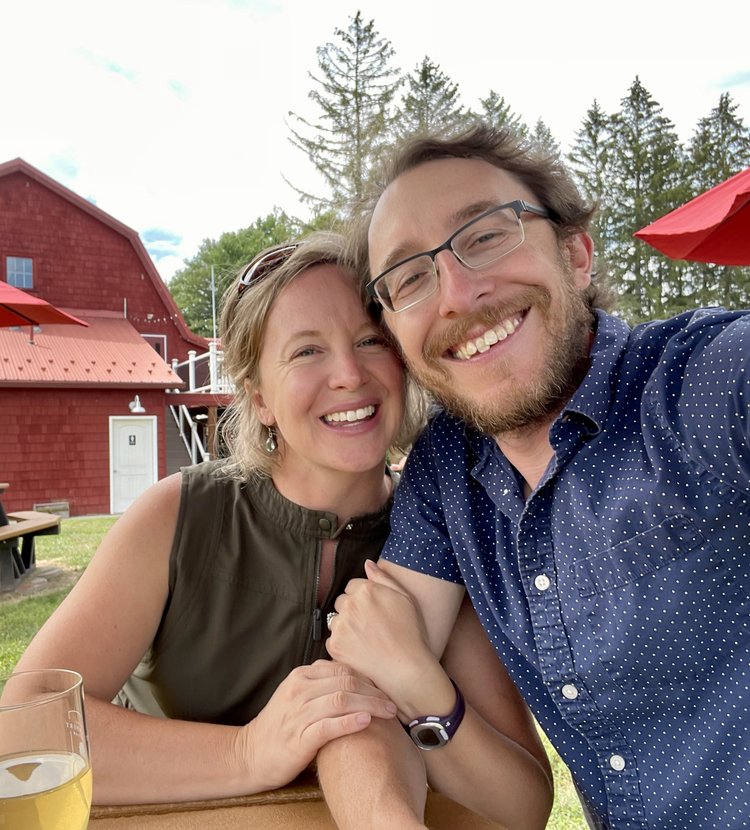
Jason subscribes to the idea that if you don’t know your numbers, you don’t really know what’s going on in your business and his careful bookkeeping was key to obtaining the grant. “If I had not been able to prove to the county how much money we lost when they shut down the farmers market, we would not have gotten the $15,000 deer fence paid for. They literally said, well show us what you lost through COVID, and we could show them. It was the same thing with the USDA, they were very rigorous about seeing our numbers.”
This year, they will limit their sales to the Farmer’s Markets and their retail accounts. “It can be hard to scale something down that you have worked very hard to scale up,” admitted Stella. “But, at the end of the day we want to really enjoy it. When we decided to stop the CSA, we were having conversations about being really careful about what we add back in. We essentially bought ourselves back that time, so we are being careful to not fill it back up with farm stuff.”
Quoting Kristen Kordet, owner of Blue Moon Community Farm, Jason said that a farm is like a child. “The farm will take as much time as you give it. If you don’t set any boundaries, they want to play Legos and fantasize about whatever all day, and the farm is exactly like that. So, you have to be the adult, you have to be the one that says, enough! There comes a point where you have to realize that if you are going to run it as a business, it’s a business. It’s not this fairy tale.”
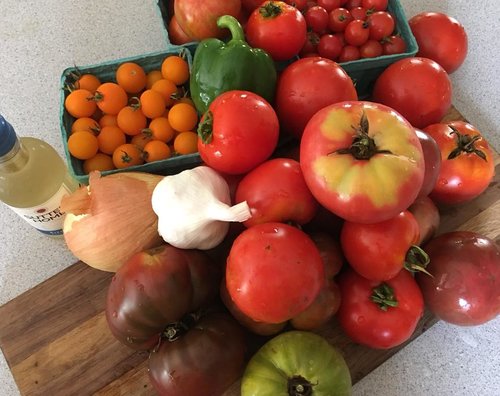
That said, they were both enthusiastic about the benefits of living close to nature. Stella talked about how something as simple as walking outside has been life changing for her, and she would encourage anyone who wants to connect with nature more, regardless of where they live, to just go out for walk. “It’s the cheapest thing you can do, it’s amazing for your health and your mental health and your creativity,” she said. Jason recommended that those interested in connecting more with nature not discount the potential of even a city lot for growing food and gardening. “I think that’s a super enjoyable way to be outside,” he said, and mentioned that research has shown that inhaling particles from the soil actually improves mental health (here’s an article about that from Forbes). “It definitely affects your mood,” said Stella. “Before the farm I would never have considered myself an outdoorsy person, but mentally there is something about working with soil that is beneficial and improves your mood, even if it is in your own backyard or container garden. You do start to really respect the wonder of the plants, it’s like you are seeing little miracles everywhere.”
Stella and Jason have learned countless lessons through their journey in building a successful farming business. Now, they are committed to keeping their workloads manageable and increasing enjoyment in their lives by setting boundaries around their farm and dreams. We shall see where the next plot twist takes them!
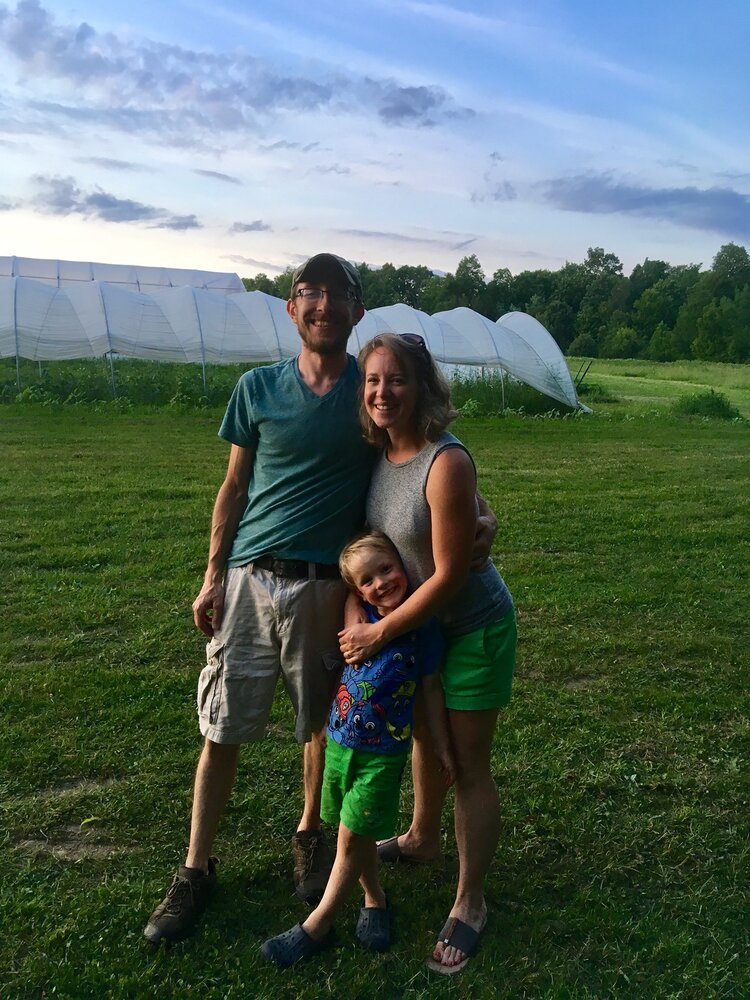

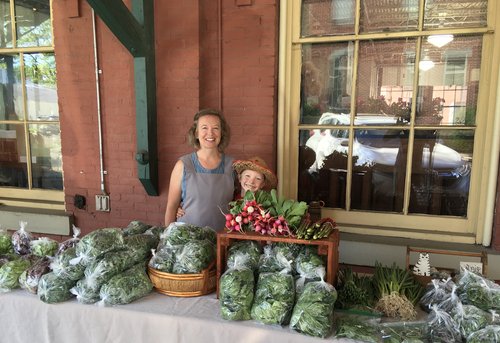
Carrie,
Your profiles are getting ‘better and better all the time’. Have you been studying for an MFA at night? Such good writing and so comprehensive, covering these folks and their evolution to good economic production! Thank you!
Dan
Thank you, Daniel!! Good to hear, I appreciate your support 🙂